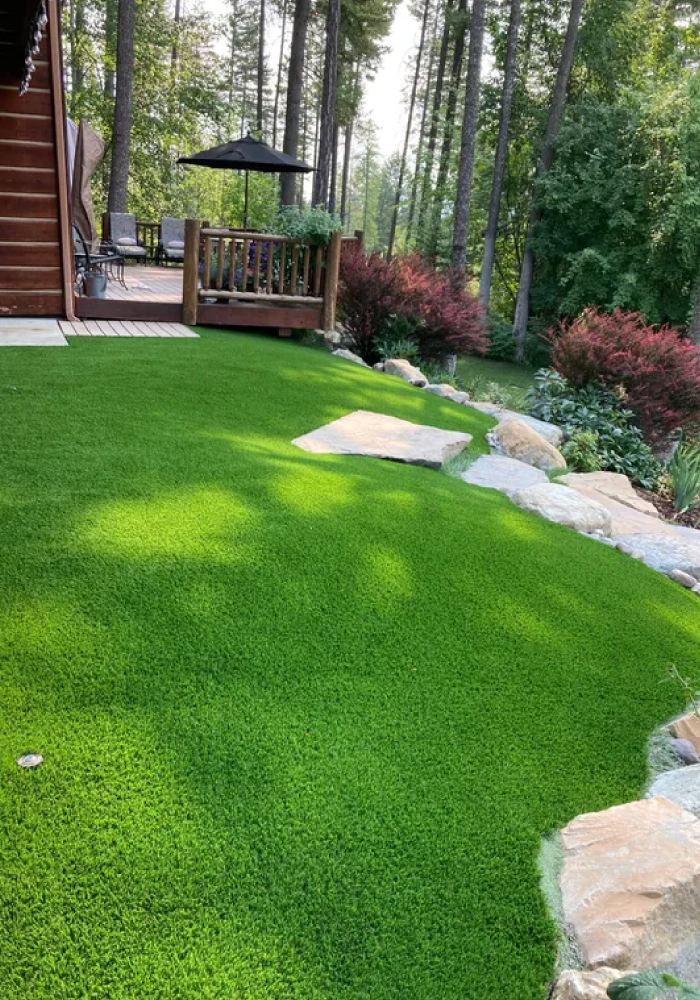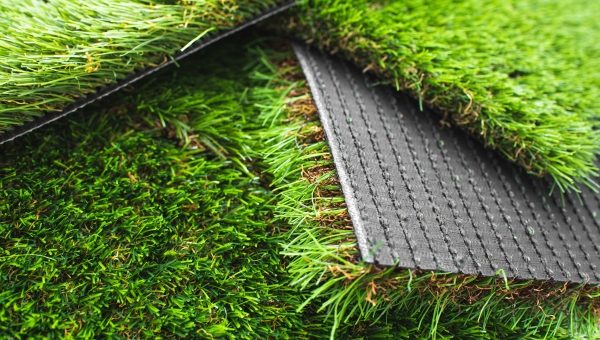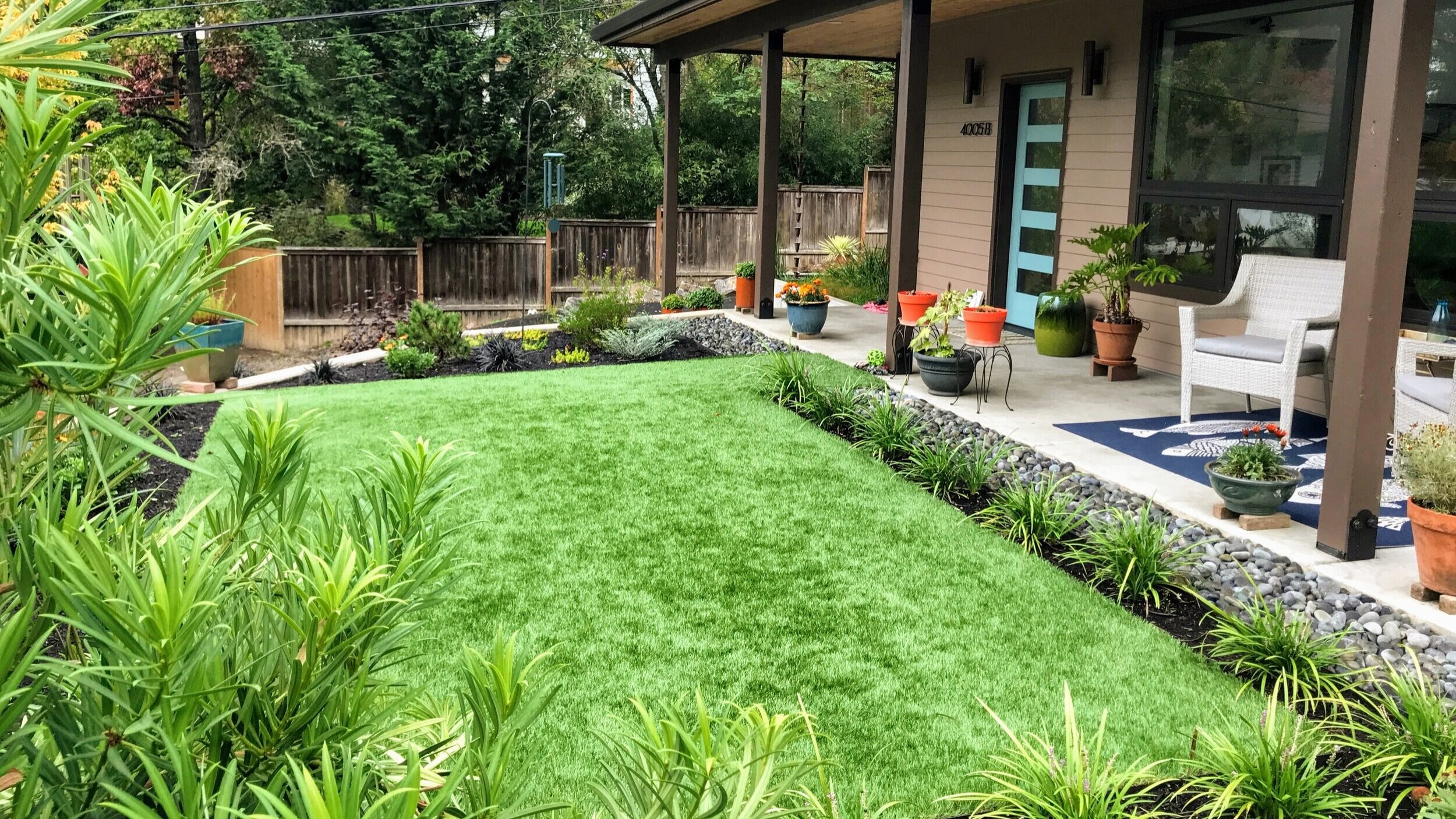Well-Known Artificial Turf Companies Phoenix for a Beautiful and Green Lawn
Well-Known Artificial Turf Companies Phoenix for a Beautiful and Green Lawn
Blog Article
Delve Into the Environmental Advantages of Opting for Artificial Lawn Solutions
The fostering of synthetic turf services offers a compelling chance to address pressing ecological challenges. By significantly minimizing water usage and lessening the application of hazardous chemicals, these alternatives not just promote sustainable landscaping yet also protect local ecological communities.
Water Conservation Perks
One of the most considerable advantages of synthetic lawn is its capability to preserve water. In comparison, fabricated lawn does not need watering, significantly reducing the general need for water sources.
By removing the need for regular watering, man-made lawn adds to lasting landscape practices and helps mitigate the environmental effect of extreme water usage. The conservation of water expands to the decrease of drainage, which can lead to soil erosion and waterway pollution.
Furthermore, the installment of synthetic lawn allows homeowners and towns to allot water sources much more successfully, focusing on vital usages such as alcohol consumption water and agriculture. The shift towards synthetic turf not just promotes accountable water usage yet likewise straightens with more comprehensive ecological objectives targeted at protecting natural resources.
As areas increasingly focus on sustainability, the water conservation advantages of synthetic grass present an engaging instance for its fostering in commercial and domestic landscaping projects.
Minimized Chemical Use
The transition to synthetic grass considerably reduces the dependence on chemical therapies generally utilized in all-natural grass maintenance. Conventional grass administration usually includes the application of herbicides, plant foods, and chemicals to promote development and control bugs. These chemicals can pose risks to human health and wellness, regional wildlife, and the atmosphere, adding to soil and water contamination.
On the other hand, artificial turf eliminates the need for these unsafe substances. Once installed, it calls for minimal maintenance, mostly including routine cleansing and infrequent infill replenishment. This reduction in chemical use not only profits the immediate setting but likewise adds to broader ecological stability. By decreasing the release of artificial compounds into the environment, synthetic grass advertises much healthier soil and water systems.
Furthermore, the absence of chemical drainage connected with synthetic lawn installations aids secure regional rivers from pollution, supporting water life and preserving biodiversity. Turf installation phoenix az. As areas significantly prioritize sustainable techniques, choosing synthetic grass presents a practical service that aligns with environmental preservation objectives. Through this shift, homeowner can appreciate lush environment-friendly rooms without endangering ecological wellness, leading the way for an extra lasting future
Lower Carbon Impact

Moreover, the installment of man-made turf can cause substantial water conservation. Natural yards call for significant quantities of water for irrigation, which not only contributes to the carbon impact connected with water removal and treatment yet additionally stress regional water sources. In contrast, fabricated lawn needs marginal maintenance, calling for no watering, thus considerably reducing water use and its associated power expenses.
In addition, the longevity of synthetic grass More Help contributes to its reduced carbon impact. With a life expectancy of approximately 15 years or more, the demand for regular replacements is lessened, causing less waste and lower power intake in manufacturing and throwing away traditional yard options. On the whole, synthetic grass provides a lasting option for eco aware landscaping.
Environment Conservation
Environment conservation is an important factor to consider in the argument over landscaping choices, specifically when contrasting fabricated turf to natural yard. All-natural turf lawns commonly call for comprehensive upkeep, consisting of using pesticides, herbicides, and fertilizers, which can detrimentally impact regional ecological communities. These chemicals can seep right into the dirt and waterways, harming indigenous vegetation and animals and interrupting local habitats.
In contrast, synthetic grass provides an opportunity to minimize the ecological footprint read more of landscape design. By going with artificial turf, property owners can lessen the disruption of natural habitats connected with conventional yard care techniques. Synthetic grass removes the need for unsafe chemicals, therefore safeguarding nearby wild animals and preserving the integrity of surrounding environments. The installation of fabricated lawn can lead to the conversion of former lawn areas right into even more biodiverse landscapes, such as pollinator gardens or native plant areas, which can support regional wild animals.
Ultimately, the shift to synthetic grass not just conserves water and reduces upkeep efforts yet also cultivates a more unified partnership between human tasks and the native environment, promoting environment conservation while doing so.
Long-Term Sustainability
Lasting sustainability is an important consider reviewing the advantages of man-made turf over traditional lawn lawns. One of one of the most considerable advantages of synthetic grass is its resilience; it can last as much as 15-20 years with marginal upkeep, whereas all-natural turf needs frequent reseeding and replacement. This longevity decreases the requirement for consistent resources, such as water, plant foods, and chemicals, which are vital for keeping a healthy turf yard.
Furthermore, man-made grass adds to a decrease in carbon discharges linked with lawn treatment devices. Conventional lawns usually call for gas-powered mowers, leaners, and blowers, all of which contribute to air pollution. Arizona turf. On the other hand, synthetic grass gets rid i loved this of the need for such tools, advertising a cleaner atmosphere
Moreover, the manufacturing of man-made grass progressively makes use of recycled products, boosting its sustainability profile. As manufacturers take on environmentally friendly methods, the ecological impact of synthetic grass remains to decrease.

Final Thought
The fostering of synthetic grass remedies offers considerable ecological benefits, consisting of substantial water conservation, minimized reliance on damaging chemicals, and a lower carbon impact. In addition, artificial grass help in protecting natural habitats by decreasing land disruption and advertising long-term sustainability through making use of durable products. Jointly, these variables emphasize the capacity of synthetic grass to add favorably to ecological wellness and use a feasible choice to typical landscaping methods in a progressively resource-conscious world.
In comparison, fabricated grass does not need watering, significantly reducing the total need for water sources. By minimizing the launch of synthetic compounds right into the ecological community, fabricated turf advertises much healthier soil and water systems.
Furthermore, the setup of fabricated lawn can result in substantial water preservation. In contrast, synthetic turf requires minimal maintenance, requiring no watering, therefore considerably decreasing water use and its linked power expenses.

Report this page